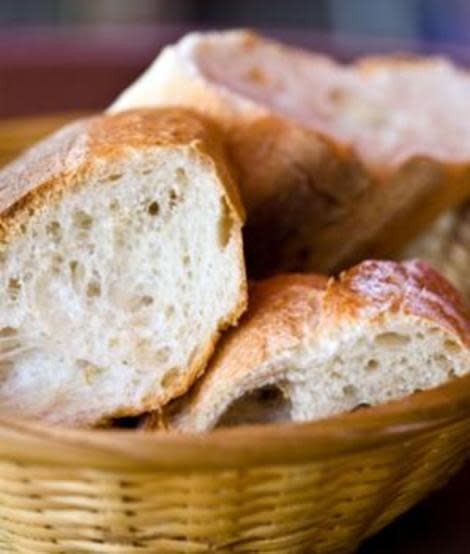The Cure for Carb Phobia?

Imagine you're out to dinner at a fancy restaurant. Which makes you more anxious: the bread basket or the fact the menu doesn't list prices? Be honest. If you're like a lot of women, the thought of a warm, aromatic basket of freshly baked carbs right in front of you makes your heart race and your palms sweat. The reason for this, says Franco Carlotto, a six-time Mr. World Fitness and author of the book Carb Cycle, is that we are suffering from "Carb phobia." Carlotto calls this mass delusion a "travesty," saying that not only does completely eliminating carbs make you feel sluggish and deprived, but it's actually bad for you. "You don't lose weight . In fact, you are training your body to preserve fat."
Carlotto's mission is to take the fear out of eating carbs, and his trick, honed by experimenting on his own chiseled physique since he was 16, is a practice called "carb cycling."
RELATED: The Best and Worst Foods for a Bikini Body
Carb Cycling: The Basics
Carb cycling involves alternating periods of low-carb intake with periods of higher-carb intake. For example, you could go almost carb-free for four days and then eat a lot of carbs for one day. Repeating this process makes for a carb cycle. To do Carlotto's particular program, detailed in his book, first you have to go back to the science.
"The body has two separate energy storage systems," he says. "You store fat, yes, but you also store carbohydrate in your liver and muscles."
The theory goes that if you eat no carbs, thereby depleting your stores, then your body goes into starvation mode. And anyone who's been on a crash diet knows how awful that feels. On the other end of the spectrum, if you eat so many carbs that your carb storage is always full, then any excess carbs you eat are stored in your body as fat.
"The key is to keep your carb storage full and then slowly (slowly!) empty it by cutting your intake of grains, starches, and exotic foods in half," Carlotto says. Once your carb storage is depleted, you can start replenishing it without fear that the calories will be stored as fat. If you do this, he promises that you will be able to eat what you like without fear of gaining weight.
Carb Cycling: Does It Work?
Carlotto is living proof that carb cycling is effective. "I was loading up on Swiss chocolate right before the Mr. World Fitness competition ," he says. "People couldn't believe it! But this is how I feel good." Being half-Italian, it made Carlotto sad to hear his fellow competitors brag about how they hadn't had a potato in months. "I love oatmeal! And brown rice and even frozen yogurt!"
Rachel Cosgrove, celebrity trainer and author of The Female Body Breakthrough, agrees that women shouldn't be afraid of good carbs and manipulating them can be a powerful fat-loss tool.
"Carbohydrates give you energy and help retain muscle, yet they can also stimulate fat storage. When you eat fewer carbs and replace those carbs with protein, the body ramps up fat-mobilizing enzymes and hormones, resulting in accelerated fat loss ," Cosgrove says. "However, a prolonged period of low carbs will leave your muscles weak and lacking in glycogen."
To maximize the benefits, Cosgrove recommends her clients cycle their carbs using a pattern of three days low-carb followed by one day of higher carbs to restock glycogen stores.
Carlotto and Cosgrove aren't the only ones who have found success with carb cycling. Both have used their methods on countless clients with incredible results.
RELATED: 7 Foods a Nutritionist Would NEVER Eat
When done properly, carb cycling works for everyone because our bodies are programmed to respond to natural fluctuations in food intake , Carlotto says. "Our bodies are smart. This is how our ancestors ate 5,000 years ago."
So while you still shouldn't go on a cake binge, there's no reason to fear the bread basket for life!
More on SHAPE:
The Smartest Things Ever Said About Dieting
6 Signs Your Workout is a Good One
8 Super Nutrients for Weight Loss
